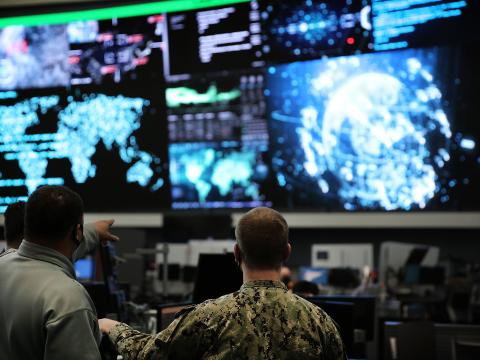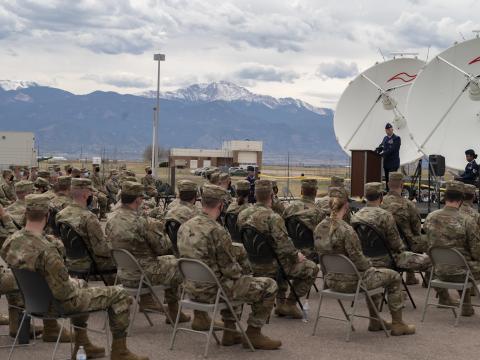Where Cybersecurity Lives
In the mind of Senator Barbara Mikulski (D.-Md.), her home state, Maryland, and her home city, Baltimore, are the ideal location for the TechNet Land Forces East 2012 conference.
In welcoming attendees today, Mikulski noted that facilities such as the U.S. Cyber Command and the National Security Agency, two organizations vital to the fight against cyberattacks, now call the Free State their home. Similarly, she said that the states’ educational institutions, including the University of Maryland, are located adjacent to many government contractors who provide expertise to some of the top federal cybersecurity organizations.
She emphasized that the military and civilian agencies represented at TechNet Land Forces must continue their work to build up the “thin cybersecurity shield,” and that citizens and leaders alike must disabuse themselves of the notion that cyberattacks “are something that will happen in the future.” On the contrary, they are happening with more frequency.
The first panel discussion of the conference posed the question, “Is the Internet the routers, switches and other equipment that make up the network of networks, or is it kitten videos, blogs, and other content?”
Rear Admiral David Simpson, USN, vice director of the Defense Information Systems Agency (DISA), said that despite the difficulty in answering that question, the answer is important in determining how he and his colleagues will defend the nation against cyberattacks.
Michael Glenn, director of enterprise security with Century Link, believes that many government and private industry chief information officers are only now coming to grips with the potential impact of cyberattacks, especially the huge potential losses that come from the digital theft of intellectual property.
For that reason, Brig. Gen. George Franz III, USA, director of current operations at U.S. Cyber Command, asserted that it is more important than ever to develop the means to “see” down the conduits of the Internet in order to better safeguard all the content which travels on its digital pathways.
Delivering the afternoon keynote to the conference, Gen. Keith Alexander, USA, Commander of U.S. Cyber Command, related to the conference how he is educating himself in the ways of cybervulnerabilities with a small, Linux-based software application called “Backtrack.” The software allows users to simulate a number of known cyberattacks on a variety of common operating systems.
Alexander said that he is working with and studying the software with an eye toward improving his own understanding of cybervulnerabilities.
In fact, Alexander said he openly questions how different components within Cyber Command are trained, to meet different needs. He believes that all components need to be trained in a common manner, like hackers, so that understanding vulnerabilities as a means of combatting cyberattacks becomes a primary thrust of any training.
The TechNet Land Forces East conference continues through Thursday at the Baltimore Convention Center.



